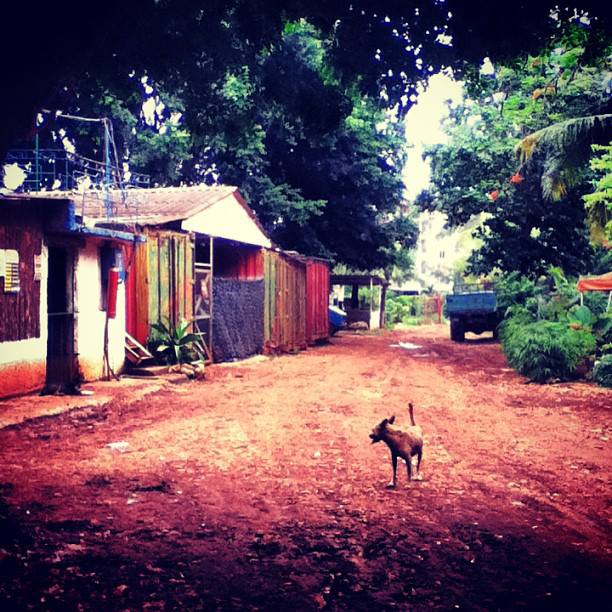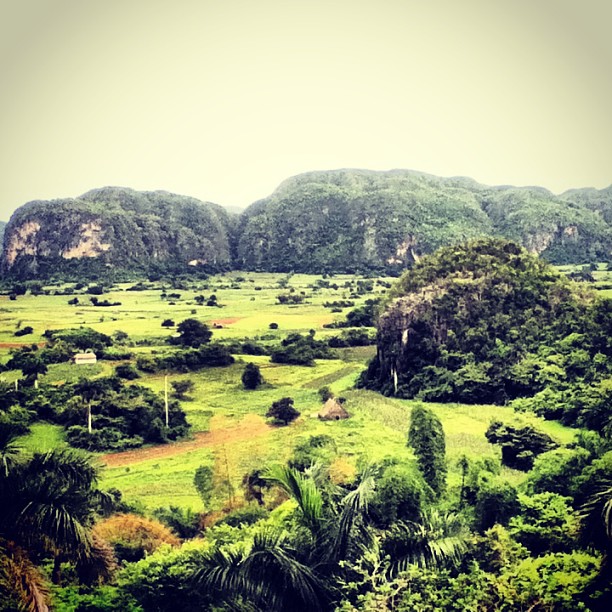 Photo Credit: Nicole Bohannon
Photo Credit: Nicole Bohannon
New Cuba Crisis Means It’s Time to Kick Out Old Policies
The U.S. should grasp the massive flight from Cuba happening now as an opportunity to foster better relations with Latin American countries. It could also serve as a better incentive to push the Cuban government towards economic and democratic liberalization when many critics are concerned about the lifted sanctions.
In 2015, more than 40,000 Cuban emigrants left the island attempting to get into the United States, the largest wave of people from Cuba since 1980. Most recently, on January 13, 180 out of 8000 stranded Cuban immigrants in Costa Rica were allowed to leave and continue their journey to the U.S. Their reality is indicative of a larger problem happening between Cuba

Small village outside of Havana (Photo Courtesy of Nicole Bohannon)
and the United States. This isn’t news to anyone following the situation. What’s surprising is that nothing has been done on the U.S. side as Cuban immigration has gotten worse in the last six months.
These Cuban emigrants, and generations before them, have relied on preferential U.S. immigration policies for the last fifty years. The most well-known among these is the “wet-foot-dry-foot” policy: as long as a Cuban immigrant makes it on land in the U.S., they are allowed to stay and be on the fast track to American citizenship. If they’re caught at sea, they are sent back.
As relations between Cuba and the United States have warmed, there is a real and growing fear amongst the Cuban people that these policies will be pulled back. The result? The massive exodus of emigrants. This has led to long-time Cuban ally Ecuador requiring travel visas for all Cubans as many were using Ecuador as a transit country. The Cuban government also began requiring doctors to obtain permission to leave the island, as another example.
If we want to resolve this situation, keeping the “wet-foot” policy in place only encourages more waves of emigrants. Instead, lifting the policy could help make the situation better in Cuba by encouraging tangible change. Without a promise of American citizenship if they leave, Cubans will be less likely to leave, and the island will retain better human capital lending to future economic development.
Likewise, lifting the “wet foot” policy can be used as a carrot to encourage the Cuban government to realistically follow through on promises of privatization and democratic institutions. This incentive can be used to institute reform with the potential to help the

El Valle de Viñales in Cuba (Photo Courtesy of Nicole Bohannon)
whole of the Cuban people more than the limited numbers helped by preferential immigration policies.
In terms of international appeal, support for removing the “wet-foot” policy ranks high among broader systemic issues like better paths to citizenship. Keep in mind that Cuba once had many regional allies to rely on, but now there is a shift in Latin American leaders who see a mostly beneficial relationship with the U.S., who simply want an end to the embargo, or who fall somewhere in between.
Without their support, Cuba has no major allies in the region. This may offer an opportunity for the U.S. to further improve its public perception in Latin America. Cuba’s previous allies in particular helped foster anti-American sentiment for the last decade to bolster their own domestic support, and have made it difficult for the United States to work effectively with the region ever since. Lifting the “wet-foot” policy would bring much-needed support for the United States from other distrustful Latin American countries.
Without change, we’re looking at many more airlifts out of Costa Rica in the future. The “wet-foot” policy is more dangerous than ever for emigrants, is an unnecessary sore spot in Latin American relations, and is an unresolved, irrelevant carryover from the Cold War.





